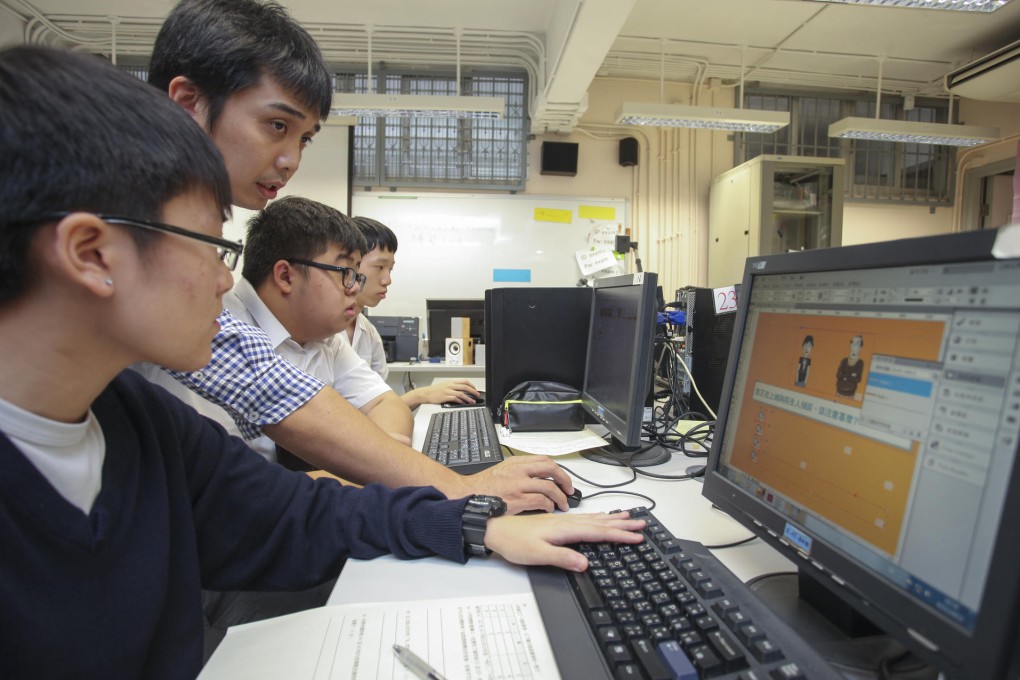Fortress Hill school steps up digital training for special-needs students
Special-needs school in Fortress Hill steps up its digital training to give students with learning difficulties a head start, writes Linda Yeung

After a day of classes, Peter, who juggles six subjects in Form Four, still likes hanging around school until 5pm. It's not so much for studying, but for his favourite activity: filming video.
Like fellow students at Fortress Hill Methodist Secondary School, an aided school catering for students with learning difficulties or special educational needs, Peter struggles with word recognition. The mainstream curriculum for a Hong Kong Diploma of Secondary Education qualification is beyond his capability.
Special-needs students need more audio and visual aids in learning
Thanks to the proliferation of computer software, he and fellow students are picking up practical skills that could land them decent jobs in the future, allowing them to lead an independent life.
Peter plans to pursue film and editing training at the Vocational Training Council after finishing Form Six, and hopes to work in multimedia one day.
He has entered various video competitions, and most of his works focus on school life. "Learning those skills will be useful for my future career," says Peter, who also plays guitar.
At one information and communication technology class, students of varying abilities were busy moving pictures around on computer screens. They were being taught layout for print and digital publishing. They were also working on a six-week project to produce a health information website, to be shared with other schools.